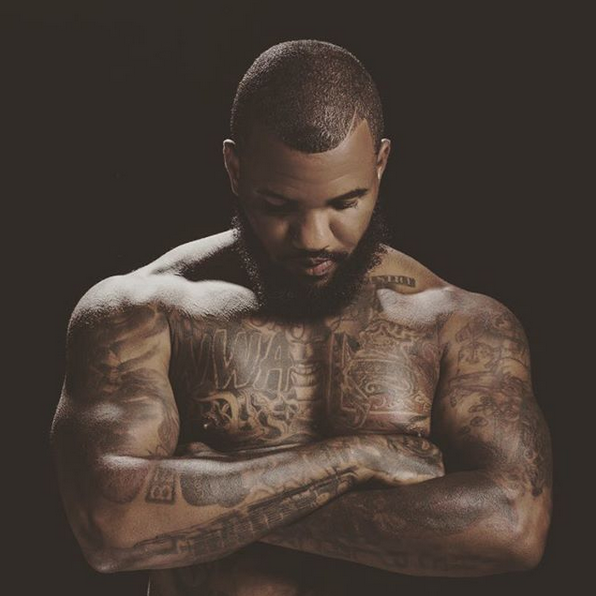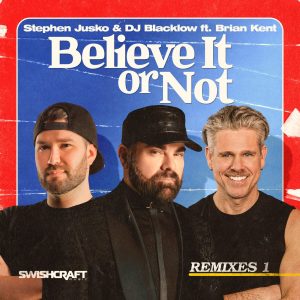 Stephen Jusko
Stephen Jusko
Jayceon Terrell Taylor was born November 29th, 1979 in Compton, California to two Crip-affiliated gang members. He grew up on Santana Blocc, a Crip-controlled neighborhood, with a large family of half and step siblings. He was hardened by a rough and violent childhood stinting from his parent’s drug use, domestic violence, and family members being killed through gang-related conflicts.
By 2000, a 21-year-old Jayceon Taylor was a member of the Cedar Block Pirus, a Blood-affiliated gang, and dealt drugs on the streets of Compton.
Late on the night of October 1st, 2001, Jayceon was alone in his apartment when the doorbell rang and after opening the door, he was jumped by three perpetrators:
I flew back, one of the dudes had a gun. I was going for my gun so the biggest of the three ran for it. He got it first, we wrestled. And he just started firing. I was shot a couple times. I knew I was going to die because everyone I knew that got shot, they died. I closed my eyes and that’s when the flash happened.
The intruders had fled the scene and Jayceon ended up with five gunshot wounds—in the chest, stomach, and arms. Bleeding and unable to walk, he dialed 9-1-1 before passing out and was rushed to the emergency room. He remained unconscious for three days.
The whole incident gave him a new perspective and started his life down a different path. During his recovery, Jayceon would watch hip-hop music videos on BET:
I remember starting to watch 106 & Park. I was just recovering from my gunshot wounds and Shyne was a rapper and he reminded me of myself. So I was like, ‘If he can be a rapper, I think I can.’ I started listening to all my old CDs. AmeriKKKa’s Most Wanted was my favorite Ice Cube CD. Straight Outta Compton, N.W.A., Nas.
These albums became his curriculum and he proved a quick study. Jayceon was rapping about his life. He was still slinging drugs and writing those experiences into his rhymes.
He took the name Game, a nickname from his grandmother because she would say that he was “game for anything.” Determined to make it in rap, he started honing his skills by freestyling on the streets of Compton and landed his first big break when he met J.T. The Bigga Figga at the West Coast Hip-Hip Summit in 2002.
Five months after being shot, Game was in a recording studio laying his life experiences on tape. The recordings, later known as Untold Story, were released in March 2002 and, in a flash, Game had an underground buzz. He started by giving out the demo with drug deals and ended up shopping the CDs at local swap meets and mom-and-pop record stores. Eventually, radio DJs got ahold of his bootleg tracks:
I just remember how good it felt for somebody to know me and acknowledge me. And tell me that something that I did was dope. You know, versus somebody wanting to kill me.
At the request of Aftermath CEO Dr. Dre, Mike Lynn was sent to pick up Game and bring him to meet the N.W.A. hip-hop legend:
He rolled down the window and was like, ‘Which one of y'all is Game?’ And I was like, ‘Me. Who wanna know?’ He took me to meet Dre. I had just finished making crack. My shirt was stained, I had cocaine in my fingernails. There was Nate Dogg, and there was Snoop, and there was Busta Rhymes and Dre played my demo. And after the first song he cut it off and he was like, ‘You wanna be down with Aftermath?’ And I was like, ‘Hell yeah.’ That was the beginning of the dream for me.
After being signed to Aftermath/Interscope and paired with 50 Cent and his G-Unit crew, The Game released his debut studio album, The Documentary, on January 18th, 2005. The multi-platinum selling album was solely responsible for bringing West Coast hip-hop back into the mainstream since its peak in the 1990s and established Game as a force to be reckoned with.
In the years since his debut, Game has beefed with countless rappers from Joe Budden to Meek Mill but he was involved in one of hip-hop’s biggest feuds: The Game vs. 50 Cent. The clash stemmed from 50 taking shots at Fat Joe, Nas, and Jadakiss, and accusing Game of being disloyal because he wouldn’t get involved. In February 2005, during an interview on Hot 97, 50 Cent announced that Game was no longer a member of G-Unit.
Shortly after having a press conference and declaring a truce between the two, Game heard 50 taking jabs at him on a few mixtape tracks:
I wanted to kill him, for real. And I thought there was a strong possibility that I would die. I just felt like me and 50 were the modern day 2Pac and Biggie. And I thought we would have the same outcome.
Rather than picking up a gun, the Compton emcee released “300 Bars And Runnin',” a 15-minute scathing diss record, where he aimed to completely end 50 Cent and G-Unit, while inadvertently starting the G-Unot movement:
There was a bar that said, ‘You sell records but a G-G-G-U-not.’ But all it was, was a metaphor, I didn’t know what I created. Next thing I know, fans start yelling, ‘G-G-G-U-not!’ Started making T-shirts, the movement got bigger than me.
After throwing his G-Unit chain into the crowd during a concert in New York, G-Unit’s home turf, Game felt like he had won the war:
That was Operation: Kill G-Unit. It worked because G-Unit clothing, I started seeing that shit on sale everywhere. When crackheads start wearing G-Unit clothing, that’s when I knew that I was successful.
In early 2006, after having parted ways with Aftermath/Interscope and his mentor, Dr. Dre, over the beef, Game went into a downward spiral with his personal and professional life:
I ended up being all alone and just contemplating suicide. Thinking that after all that I had been through, this is what I’m left with? This alone.
Proving to himself that he didn’t need anyone’s help, Game recorded and released his second album Doctor’s Advocate on November 14th, 2006 without any input from Dr. Dre. The album spawned the smash hit “It’s Okay (One Blood)” and shot straight to the #1 spot on the Billboard charts:
The Doctor’s Advocate will forever be my greatest album. Better than The Documentary to me. This solely on the fact that I did it all by myself.
On March 2nd, 2008, Game was sentenced to 60 days in jail. Alone with his thoughts, he channeled his emotions and wrote his next monster hit, “My Life,” featuring New Orleans rapper Lil' Wayne for his third album, L.A.X.
Game continued to release critically-acclaimed albums including the fan-named The R.E.D. Album, his first concept album, Jesus Piece, the sequel to his groundbreaking debut album, The Documentary 2/2.5, his ode to the 1992 Los Angeles riots and the year he first became a gang member, 1992, the double-disc Born 2 Rap, released on his 40th birthday, and 2022’s DRILLMATIC: Mind vs. Heart.
Being one of the driving forces keeping West Coast hip-hop alive, Game has represented and paid homage to California throughout his entire career.


